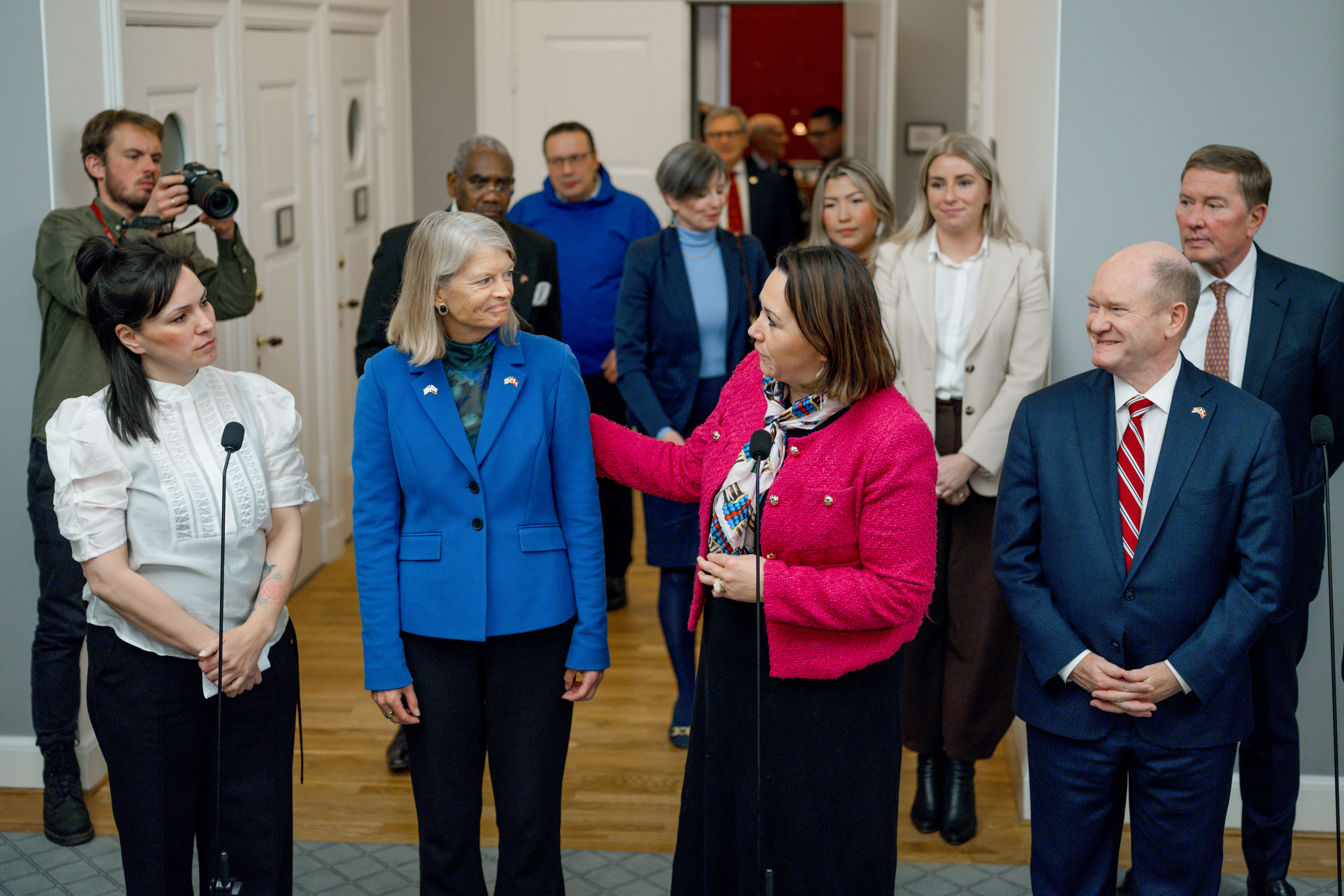Meghan Markle’s Netflix show angered critics. This columnist says she knows why
Critics and the internet are mad about Meghan, Duchess of Sussex — again.
This time, the viral uproar is about Meghan’s Netflix show, With Love, Meghan, which premiered on Netflix in early March. The lifestyle show follows Meghan (now going by Meghan Sussex) as she offers tips on homemaking and entertains celebrity guests at a beautiful California estate.
Netflix has renewed the show for a second season slated to stream in the fall.
The first season, though, was met with harsh critiques. Some reviews labeled the show as being out of touch, while memes and TikToks lambasted the actress-turned-princess’ on-screen persona.
So why all the hate, the snarky memes, the takedown pieces?
Leslie Gray Streeter, a columnist for The Baltimore Banner, thinks she knows why. Earlier this month, she published a column headlined “The real reason people are mad at Meghan Markle’s new lifestyle show.”
She joined Morning Edition host Michel Martin to discuss why she believes Meghan is being subjected to such criticism.
This interview has been edited for length and clarity.
Michel Martin: So out with it. What’s the real reason?
Leslie Gray Streeter: The real reason is I’m going to say racism and jealousy that is couched in racism and a little classism and just, you know, basically being mad that people have things that we might want that we don’t have. And then racism.
Martin: What makes you convinced of that?
Streeter: The response to her has always been couched in race. And I think that in this thing, it kind of shocks people, even though you know at this point she’s royalty and that she is very wealthy. She was a successful actress who was a millionaire before she even married Prince Harry. But seeing her having a soft life, having a life where she can be at leisure to have bees in her backyard and make fruit rainbows and balloon arches, seems like that’s the final straw. Something about that offends people.
Martin: You mentioned a soft life. What is a soft life and why do you think it seems to trigger some people?
Streeter: If you look at things like The Barefoot Contessa or anything in a Nancy Meyers movie, where it’s just a person who is probably a woman who has a means who can, like, sip chardonnay in a white sweater looking off the coast of her huge kitchen onto the deck or whatever. But I think that the soft life part comes with money and it comes with money to buy the time to do that. And that is not something I think that women of African descent are expected to have. The idea of what black femininity is is not that.
Martin: Let me just push back on this a little bit and ask: Could it be that part of the reason people are hating on her is that they kind of hate on women anyway?
Streeter: Well, that’s certainly part of it. I wrote a story, actually, when I wrote a column when Martha Stewart’s documentary came out on Netflix about that, about the fact that people resent her because she doesn’t try to be nice.
I think that the Black piece adds a sense that if anyone is supposed to be in a palatial estate making mountains out of cream cheese or something with a very expensive knife, it’s not Meghan Markle.
Martin: The final line in your piece, which is one that I think a lot of people passed around to each other, says that one of the problems is that people want her to make herself smaller and she’s saying that’s not going to happen. What does that mean? And why do you think that’s so hard for people to accept?
Streeter: I think in this and even in our professional lives, women – all women and I think particularly women of color – are expected to be self-deprecating, to not take too much credit, lest we be called arrogant or intimidating.
The radio version of this story was edited by Adriana Gallardo and produced by Ben Abrams.
Trump says he’s pursuing Greenland after perceived Nobel Peace Prize snub
"Considering your Country decided not to give me the Nobel Peace Prize… I no longer feel an obligation to think purely of Peace," Trump wrote in a message to the Norwegian Prime Minister.
The 2026 Olympics are the most widespread in history. See what’s happening where
Competitions will be hosted at 25 venues spanning an area of more than 8,000 square miles. Here's what's happening at each of the four main clusters.
U.S. lawmakers wrap reassurance tour in Denmark as tensions around Greenland grow
A bipartisan congressional delegation traveled to Denmark to try to deescalate rising tensions. Just as they were finishing, President Trump announced new tariffs on the country until it agrees to his plan of acquiring Greenland.
Trump has rolled out many of the Project 2025 policies he once claimed ignorance about
Some of the 2025 policies that have been implemented include cracking down on immigration and dismantling the Department of Education.
Can exercise and anti-inflammatories fend off aging? A study aims to find out
New research is underway to test whether a combination of high-intensity interval training and generic medicines can slow down aging and fend off age-related diseases. Here's how it might work.
High-speed trains collide after one derails in southern Spain, killing at least 21
The crash happened in Spain's Andalusia province. Officials fear the death toll may rise.






